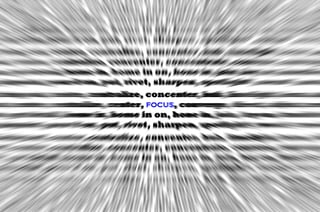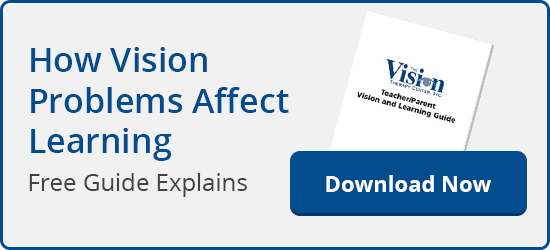
Can developmental optometrists predict the future? No, but they can predict the future behavior patterns of their patients. That’s because vision leads behavior, a fact which helps us understand the reason behind academic and social struggles in children.
Does your child take forever to do their homework? Or do they not study at all? Are they disruptive in class? These are all typical study and behavior patterns of children with functional vision problems. Because we’ve seen so many patients with functional vision problems, we can “predict” how these children will act.
For example, after a child undergoes a functional vision exam with us, we review the results with the parents. During that session, we accurately describe how the children study and act in school -- even though we’ve never observed them outside The Vision Therapy Center.
Before we detail why those behaviors occur, let’s define a functional vision problem.
Functional Vision - Moving Beyond Typical Vision Screenings
Functional vision is your visual system’s ability to see an object in space. For example, if a ball is thrown in your direction, your entire visual system is working to watch and react to it as it travels through the air.
The visual system is not just your eyes. It includes your eyes, brain, and all the visual pathways. All these components must work together to follow the ball. And vision doesn’t just include seeing the ball, either. It integrates how your body reacts and interacts with the object in space.
Take those concepts and apply them to the classroom and your child. Your child’s functional vision must work together to track a line of text in a book or on the whiteboard. Their two eyes must move in tandem across the page, focusing on the same point, and sending a signal to the brain.
When this doesn’t happen, problems occur. If the eyes aren’t looking at the same point on the page, the words may appear jumbled together. Double-vision is common. We’ve even had kids describe how words literally jump off the page.

A problem with tracking, which we’ve just described here, is but one of many functional vision issues which can affect your child. And they can manifest in strange behaviors.
Vision Predicts Future Behavior
We’ve noticed some typical symptoms of functional vision problems. Poor study habits in particular seem to be a bellwether for a vision issue, especially among school-age children and young adults. Here are a few examples:
Studies all the time: Does your child spend hours upon hours with their homework, laboring far longer than their peers? While there may be some processing issues (which can be related to vision), the inability to follow a line of text, for example, could make a reading assignment stretch on for hours.
The children who struggle through these hours of homework tend to be remarkably driven to achieve good grades. They are diligent fighters in many cases. Because they’ve likely had the vision issue their entire life, they don’t realize that their visual skills are impaired.
Studies for short bursts: Unlike the struggler we just mentioned, another study habit is the person who studies in short bursts. Parents may initially think this is an indication of ADHD behavior, but in truth, the child’s eyes may water or they may experience headaches if they study for too long at one time.
We’ve had children who study like this, knowing that if they read for longer stretches, they’ll get a headache.
Doesn’t study at all: Here’s a simple exercise that will give you a sense of what a functional vision problem is like. Make a fist with each hand, and then squeeze it as hard as you can. Hold that clenched fist for as long as you can, and then release it.
Does your hand feel exhausted? This is how your eyes may feel when you have a functional vision problem. Some children, who experience this kind of pain and discomfort, bypass studying all together. It’s hard to blame them.
These types of reactions aren’t limited to studying alone. Here are a list of school day stress points that are particularly difficult for a child with a functional vision problem.
What can be done? We recommend you start by taking our simple Vision Quiz, and downloading the Vision and Learning Guide (click on the button at the end of this post). These will provide you with a list of typical vision symptoms.
If your child is suffering from a functional vision problem, then we highly recommend a functional vision exam as the next step.


